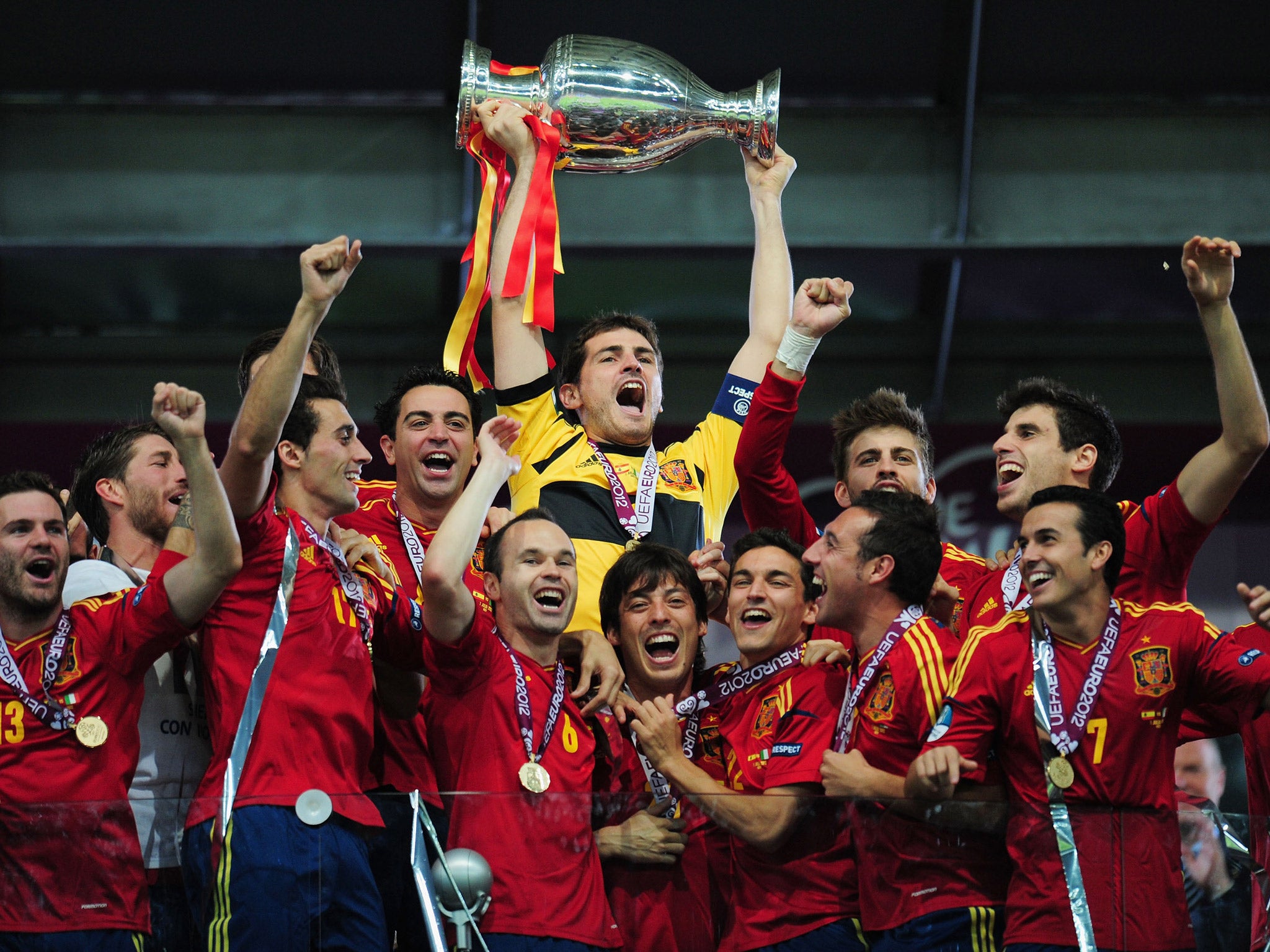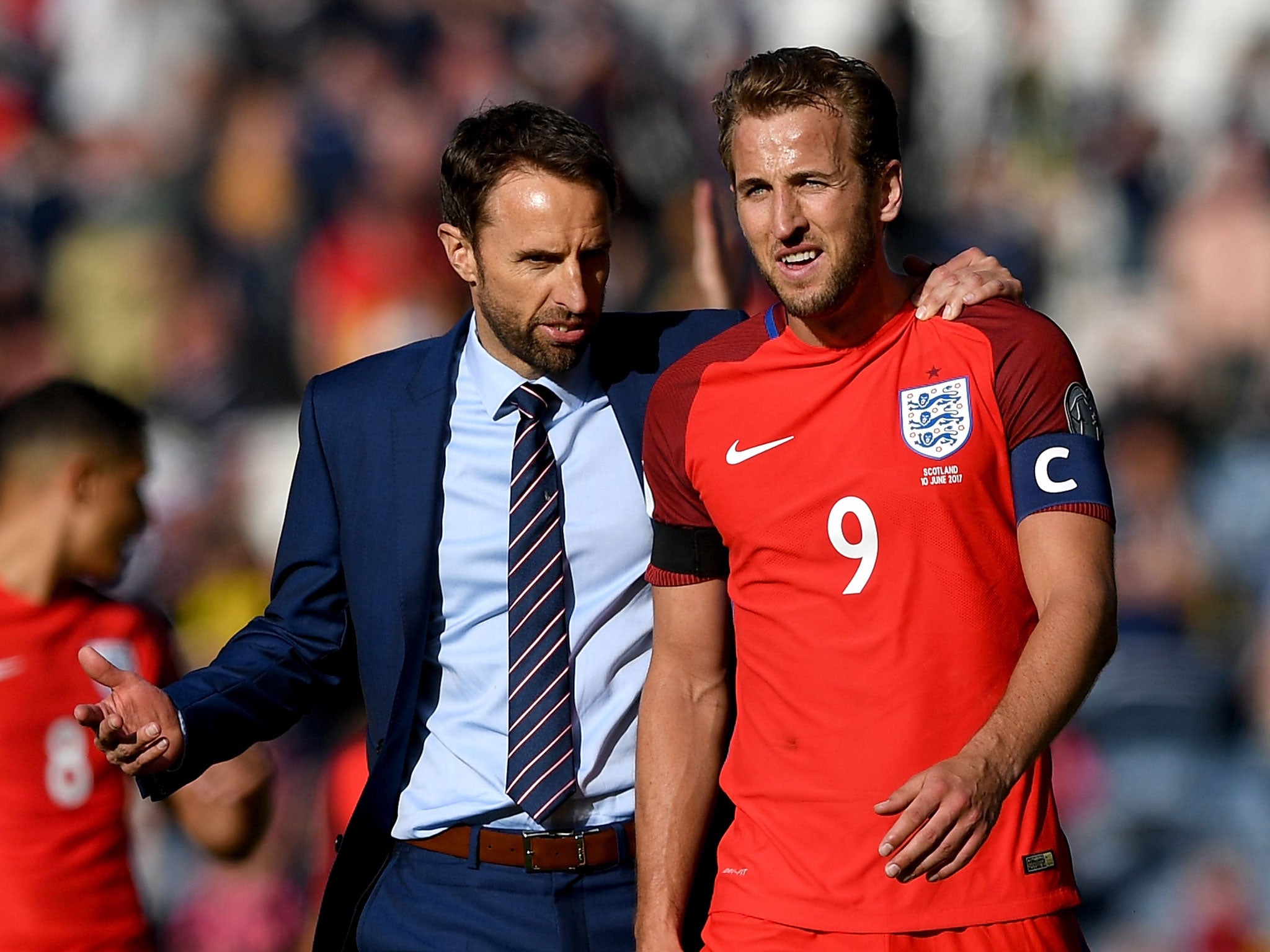World Cup 2018: Why Brazil, Spain and the Netherlands can help England shirk their unwanted stereotype in Russia
The 1958 Brazil side were known as ‘perennial losers’ before completely revamping their image at the World Cup, and 2018 may just prove to be when England finally rid theirs

Your support helps us to tell the story
From reproductive rights to climate change to Big Tech, The Independent is on the ground when the story is developing. Whether it's investigating the financials of Elon Musk's pro-Trump PAC or producing our latest documentary, 'The A Word', which shines a light on the American women fighting for reproductive rights, we know how important it is to parse out the facts from the messaging.
At such a critical moment in US history, we need reporters on the ground. Your donation allows us to keep sending journalists to speak to both sides of the story.
The Independent is trusted by Americans across the entire political spectrum. And unlike many other quality news outlets, we choose not to lock Americans out of our reporting and analysis with paywalls. We believe quality journalism should be available to everyone, paid for by those who can afford it.
Your support makes all the difference.There’s nothing like the colour of a World Cup for firing a country’s imagination, for making everyone hope they can do something historic… but also thereby nothing like it for colouring the entire impression of a team and creating a perception that permanently lasts. As the biggest event a national side can be involved in, this is where results resound for a long time. This is where images of a side become as set as the colours of their shirt.
This is where Brazil Football became beautiful winners, where Germany became resolute winners and where the Netherlands became so entertainingly frustrating.
The Dutch haven’t made it this time for some fairly deep reasons, with their role almost directly taken by neighbours Belgium, but those reasons also reflect something very relevant now that we’re going to hear so many of the old perceptions of sides again over the next few weeks.
England are more aware of this than anyone, given that they are a country with a more defined tournament “cycle” – unfair criticism, undue hype, underwhelming elimination – than anyone, but the players and management should be well aware of something else.
Brazil, Germany and the Netherlands are countries that actually used the World Cup to completely transform their perception of themselves. The same applies to Spain, Chile, Uruguay and Hungary with some of those long-term and supposedly fixed perceptions swinging more than once.
It is an issue that became quite animated at the peak of the club game in the past season, particularly around Juventus’ elimination of Tottenham Hotspur and Real Madrid’s victory in the Champions League, with Giorgio Chiellini effectively arguing that it’s very difficult for a team to escape their history. That becomes all the more pronounced at international level because there are fewer big games, making them so much more intense and psychologically involving, and because so much then gets wrapped up in wider notions about national identity and psyches.
Those very notions are also for grander academic studies but there is a fair argument that the knowledge of a team’s history – rather than any nonsense inherent traits – does play on squads’ minds, with that further fired by what it will mean for the population watching.
If you play for a country that usually does the job, it will embolden you with assurance at key moments, as so many German players have admitted.
If you play for a country that usually falls short, it will impinge on you with hesitation and doubt, as many England players admitted during the remarkable defeat by Iceland at Euro 2016.
This is something that Gareth Southgate’s management staff have actually tried to address, and proof of how you can comes with one of the greatest international sides ever.

Captain Iker Casillas admitted a few months after Spain’s 2010 World Cup that, in the glorious minutes between the final whistle and lifting that unique trophy, he couldn’t help thinking of the times that weren’t so glorious.
“I was crying from happiness and crying from completing a dream from when I was young after hearing about so many failures, so many calamities, so many theories about how Spain were never going to win a World Cup, how Spain were never going to be a serious international team.”
That they did. It’s easy to forget now after the finest span of success international football has ever seen between 2008-12 but Spain were once viewed as the perennial failures – the perennial “dark horses” who were actually a light touch – with their recent glory seeing that status pass to England.
That recent glory, of course, didn’t really come from recent changes. It came from one of the most extensive coaching overhauls in football. Spain’s entire philosophy of the game was altered and similar grander processes were behind West Germany’s real rise in the early 1970s, the Netherlands’ quantum leap in the same period – with both coming after the advent of professionalism – as well as Germany’s rebirth in 2006 and Chile’s surge from 2010 on. The Dutch are meanwhile said to have recently declined because of a neglect of such areas, and a complacency.
While the Football Association have already started such necessary steps – to the point so many senior football figures on the continent say it is a matter of time until England start really winning – that isn’t quite a help to Southgate’s side or any of the other teams in the tournament feeling the weight of history but not the benefit of such foresight.

That need not matter, as one of the most famous sides proved. Good short-term planning and astute management, admittedly combined with the necessary talent, can overcome an awful lot.
Take Brazil 1958. The very name conjures images of an all-conquering side, but that was only the case after 15 June 1958 – a landmark day in Brazilian history, and football history. Before then, Brazil had been the Netherlands, or England, or old Spain of their day, but multiplied by so much having also suffered one of the game’s most traumatic defeats at the Maracanazo. That was the match that saw their first World Cup snatched away from them on their home ground, in a 2-1 defeat by Uruguay, that led to an infamous and intense period of national mourning.
It also led to Brazil becoming known as infamous losers, to the point they even changed the colour of their kit due to the stain of the day.
It was a stain that hadn’t quite gone away by the third group game of the 1958 World Cup, as they had to beat a fearsome USSR to ensure progress to the quarter-finals. Brazil’s neurosis was such that they had employed a psychologist to assess the mental readiness of the players...only he had advised leaving out a very young Pele and hugely frustrating and self-indulgent Garrincha, among nine players supposedly unsuited to such a high-pressure match.
Manager Vicente Feola went with his instinct, however, and his innate tactical wisdom. He went with a new 4-2-4, and Pele and Garrincha within it. There was more to it than that, though. Conscious of the physical power of the USSR, Feola felt they should seek to intimidate them in a different way early on. “Remember, the first pass goes to Garrincha.”

He had destroyed the Soviet defence and smashed a post within one minute, Pele hit the bar within two and Vava hit the net within three. Brazil won 2-0, and went on to win the World Cup. The entire mindset of the side had changed in between, and the entire perception of the team thereafter.
Founder of the European Cup Gabriel Hanot described those three minutes as the greatest ever played in the game. They also represent a great lesson.
Join our commenting forum
Join thought-provoking conversations, follow other Independent readers and see their replies
Comments